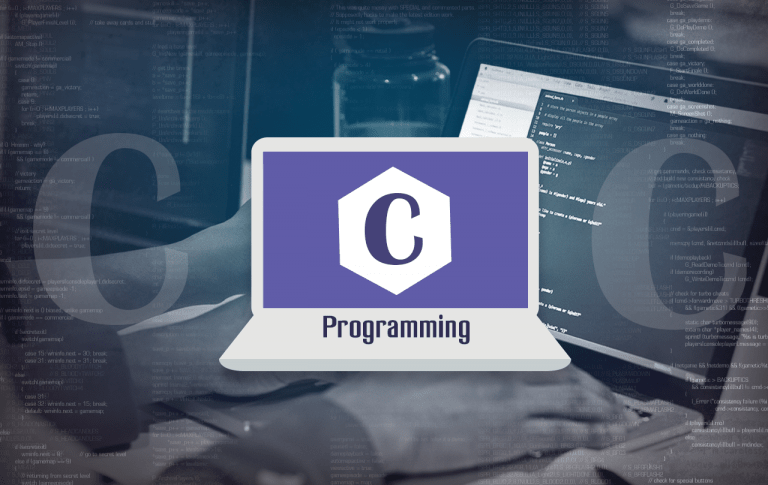
Course Overview
Advanced C programming course skims through the basics of C and soon jumps over to the core of C programming language which looks simple but difficult to master. Our C Training will make the participant learn deep C secrets and develop a fairly advanced level of C programming expertise which is essential to write complex mission-critical systems and application software.
Course Highlight
Advanced C Programming course will be delivered by our Founder/Director who is an Expert with 17+ years of experience in Linux Kernel and SAN software development. The C training flow will be an assignment driven model so that participants can develop an expert level C programming skills.
Participants will be writing lots of C programs dealing with operator precedence, conditional constructs, strings, pointers, arrays, arrays & pointers, double pointers, function pointers, pointers to arrays, internal storage for various data-types, creating in memory data-structures, bit-field operators, recursions, function call and stack formation, standard file I/O library, buffered IO, etc.
Course Delivery
Lectures, Classroom Discussions, and C Programming Lab Exercises
30% Theory, 70% Lab
Location: ITRONIX SOLUTION, Mohali , India
Pre-Requisites
Basic knowledge of C with a deep desire to learn C programming in depth.
Target Audience
IT Professionals and/or Students who want to become a serious Developer.
Experienced professionals preparing for Technical C-Round Interviews in Top IT Product MNCs.
Advanced C Training Course Outline
The C Language
- C Program Compilation
- Execution Process
- Tokens of C Program
- C Instructions
- Constants, Variables
- Identifiers and Keywords
- Primitive Data Types
- Structures – The Definitionv
- Structures – Declaration & Type
- Accessing Elements of Structure
- Range of Signed/Unsigned Data-types
- Efficient way of Printing Pointer
- Compiler Memory Allocation for Data-types
- Compiler Memory Allocation for Structures
- Data-type Alignments
- Compiler Memory Allocation for Unions
- Union – Data Corruption
- Practical Usage of Unions
- Practical Usage of Bitfields
- Bitfields Overflow
- Printing every byte of an Integer
- Enumeration
- Typedef Statements
- Practical example of Typedef Usage
- typedef’ing a Function Pointer
- Bit-Fields in Structure
- Practical examples of Bitfield Usage
- Structure Padding & Pitfalls
- Programming Model & Memory Sizes
- Why Sizeof Int and Long is 4 or 8?
- Use of long long in 32-bit Architecture
- Practical Example of long long
- IA-32, IA-64, ILP-32, LP64, x86-64
- Array – Representation
- Array – Memory Allocation
- Array – Declaration & Initialization
- Two Dimensional Arrays
Pointers
- Accessing a Variable Through Pointer
- Pointer – Memory Allocation
- Pointer – Declaration & Initialization
- Pointer – Dereferencing
- Pointers & Arrays
- Character Arrays using Pointers
- Array of Character Pointers
- Memory Diagram – Array of Char Pointers
- Arrays as Pointers – a[i] == i[a]?
- Constant Pointers
- Pointer Arithmetic
- String Handling Functions
- String Conversion Functions
- Efficient usage of sscanf()/sprintf()
Computing Basic
- Binary & Octal Systems
- Decimal & Hexadecimal Systems
- Signed Representations in Memory
- Binary Shifts – Right & Left
- Sign Bits and Bit-Shift Operations
- Right Shift – Logical Vs Arithmetic Shift
- Bit-Shift Overflow
- ASCII Representations
- Endian-ness – Little Vs Big
- Endian-ness – Portability Issues
- Operators
- Bitwise Operations
- Logical Operators – Short Circuit
- Bitwise Vs Logical Operations
- sizeof() operator
- Pitfalls/Issues with sizeof() usage
- Pointer Increment & Scaling
- Operator Precedence
- Operator Associativity
- True meaning of Associativity
- Examples of Precedence & Associativity
- Ternary Operator Associativity Rule
- Data-type Conversion Rules
- Float to Int to Float Conversions
- Variadic functions & default promotion rules
- Printf Idiosynchracies
- Pointer Format Specifiers
- Signed Vs Unsigned – Pitfalls
- Evaluation of i = ++i + ++i
- Evaluation of i = ++i + ++i + ++i
- Concept of Sequence Points
- Example of Sequence Points
Storage Classes
- Storage Class Specifiers
- Scope of a Variable
- Register, Auto, Static, Extern
- Why Register Class and Practical Examples
- Automatic Variables and Stack
- Static Variables and Functions
- True meaning of Extern
- How to Use extern across Multiple Files with Examples
- Best Practices for Extern Usage
- Local/Block/Global Scope
- Nesting of Scope
- Lifetime of a Variable
- Linkage of a Variable
- What is Const?
- Practical Examples of Const Qualifier
- Usage of Constant in library functions (libc)
- What is Volatile?
- Practical Examples of Volatile Qualifier
- Const Volatile Together?
- Register Vs Volatile Performance?
- Practical Examples of Const Volatile
- Pointer Aliasing
- What is Restrict Qualifier?
- Restrict Keyword and Compiler Optimization
- Examples of Restrict Qualifier
Memory
- Dynamic Memory Allocations
- malloc, calloc, realloc, free
- malloc Vs calloc
- Heap Memory
- Stack Memory – Pitfalls
- Dangling Pointers
- DMA – Errors
- Best Practices for malloc() & free()
- DMA – Unspecified Behaviour
Functions & Pointers
- Invoking Functions
- Passing Arguments to Functions
- Call by Value & Reference
- Is C call by Value?
- Is C call by Reference?
- Array as Function Argument
- Rules for Array Argument Passing
- Multi-dimensional Array Argument Passing
- Structure as Function Argument
- Static Vs Dynamic Runtime Environment
- Function Call and Runtime Stack
- Rules for Evaluation of Function Arguments
- Memory Organization
- Code Segment
- Data Segment
- Heap Segment
- Stack Segment
- free space
- register space
- Stack Frames
- Calling Sequence
- View of Runtime Stack with Example
- Access to Local Variable in Stack
- Local Temporaries
- Function Pointers
- Declaration and Usage of Function Pointers
- Function Pointers as Function Parameters
- Practical Example of Function Pointers
- Pointer to an Integer Array
- C Pointers Complexity Chart
- int **p
- int (*p)()
- int (*p)[] int *p()
- int *(*p[])()
- int *(**p)[]
Preprocessor
- Preprocessor – #include statements
- Multiple Inclusion of a Header File?
- Preprocessor – #define statements
- Preprocessor – Conditional Compilation
- Preprocessor – Nested Macros
- Preprocessor – Multiline Macros
- Preprocessor – Stringizer
- Preprocessor – Token Concatenation
- Preprocessor – Useful Directives
- Conditional Directives for Debugging
- Where Macros are Heavily Used
- Practical Examples of Macros
- Macros Pitfalls
- Macros Vs Enums
- Inline Functions
- Macros Vs Inline
- Inline Recursive Functions
Command Line Argument
- Environment Variables in C Programs
- Recursion Example
- Recursion Vs Iteration
- Code/Space/Time Complexity
Standard I/O Library
- Files & Streams
- Streams Buffers
- IO Buffers – Line Vs Full Vs No-Buffers
- Setting & Flushing Buffers
- File Access
- File Access Modes
- Sequential Vs Random Access
- Concept of File Offsets
- File Operation Errors
- End-of-File Condition?
- Return Values and Error Values
- Character Based File I/O
- Line Based File I/O
- Formatted File I/O
- Block File I/O
- Dangerous – gets() Vs fgets()
- File Random Access Methods
